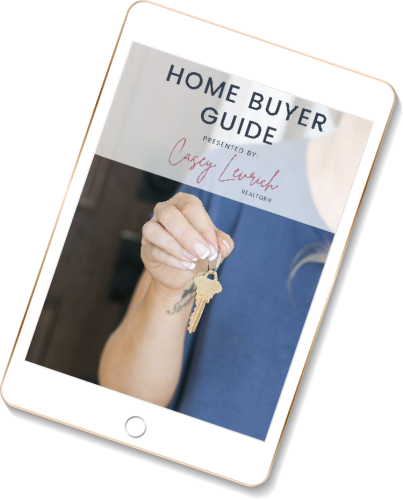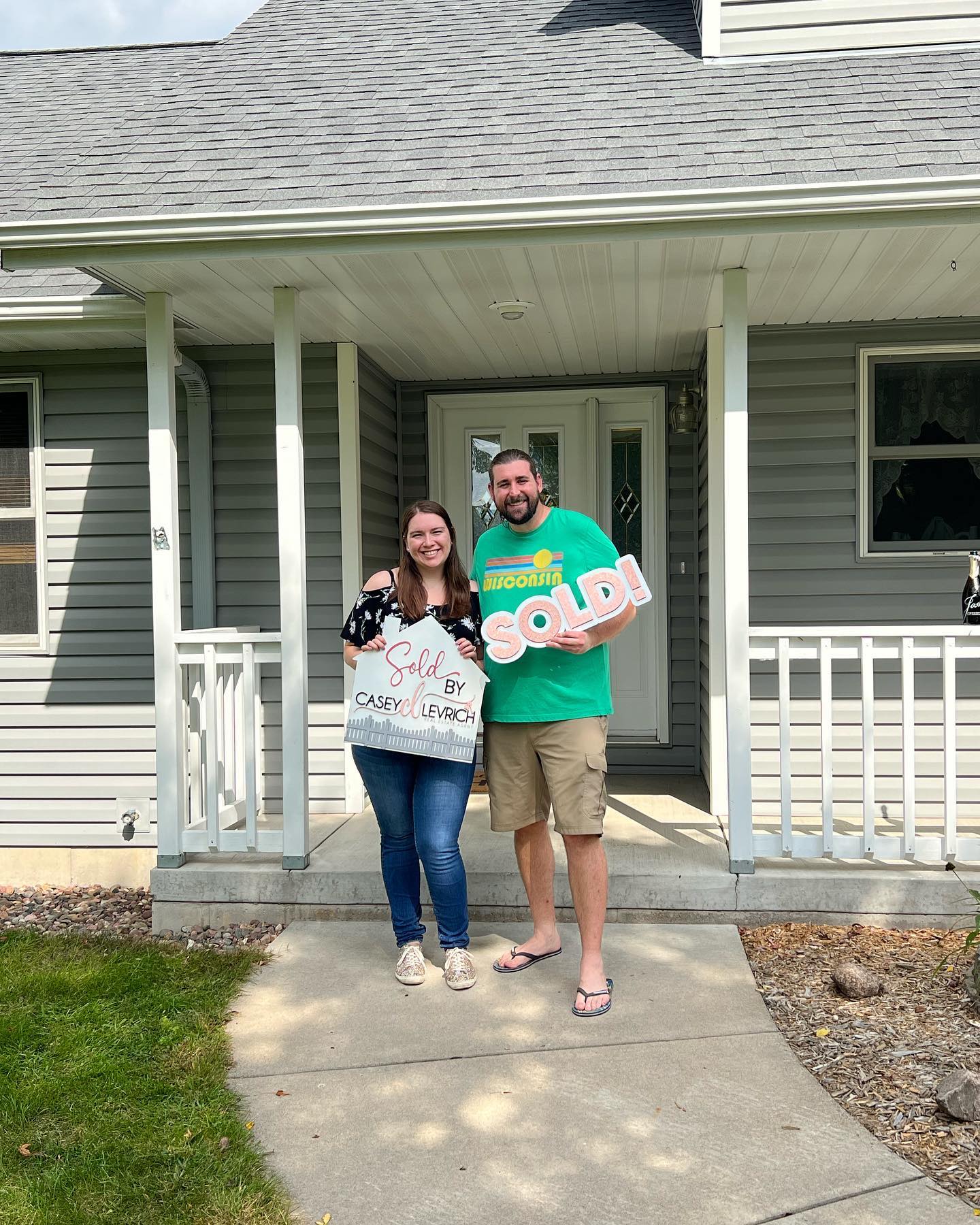For Buyers
A home is...
more than just a house.
I get it, there are tons of agents out there to choose from. Keep reading to learn how I make your home buying and selling experience unique!
Has your family started to outgrow your current home? Or are you a first time home buyer that is ready to stop renting? Or perhaps now is the time to purchase that vacation property you have been dreaming about for years.
No matter what your home buying goals are, I am here to help!
From our first conversation over coffee (or an adult beverage) to the finish line at the closing table, I’ll be there every step of the way to guide you through the home buying process as your trusted advisor turned friend.
How it works
THE BUYING PROCESS
1) Choose a real estate agent
Find an agent with whom you feel comfortable and can trust – this person is your lifeline during the process
2) Get pre-approved
You need to know your budget and a pre-approval letter makes your offer stronger
3) House Hunt
This is the best part – pick homes to tour and find the perfect one
4) Negotiate
Once you find the right house, I will help craft a strong offer
5) Due Diligence
Once you are under contract, it is time to complete inspections, request any necessary repairs, and secure financing
6) Closing
Congratulations! Today you sign a bunch of paperwork and walk away with the keys to your new home!
Must have freebie!
Home Buyer Guide
Not sure where to start? This guide has everything you need to get started with the home buying process. Including recommendations for local mortgage lenders and home inspectors!

What Makes Working With Me Different?
We start with a coffee date (or adult beverage date) to discuss your home buying goals. While real estate is a business transaction, it is also a very personal one. Even more important than just discussing your home buying goals, it gives me an opportunity to learn all about you!
With over a decade of working as a licensed therapist, I have extensive training in high levels of communication, problem-solving, motivational techniques, and much more.
Showings are the best part of the housing search. You love to look at the pretty houses and I love to look at the pretty houses. My approach is zero pressure. I provide education and guidance to help you make the best decision for your family. And if we are headed out for a morning (or even mid-day) showing adventure, don’t be surprised if I show up with your favorite coffee order!
When it comes to managing a transaction, I have a system in place for everything. I have step-by-step checklists to make sure nothing is forgotten, including important deadlines. I provide regular and frequent communication throughout the transaction process to make sure you always know what is going on behind the scenes.
I have a specialty certification as a Military Relocation Professional (MRP). Through this additional training, I have developed the competency to assist active military and veterans in purchasing a home. Whether you are looking to use your VA Home Loan benefit or another traditional loan program, I have the expertise to get you into the right home. A little added perk is my 6+ years working for the Department of Veterans Affairs as a housing program social worker. I understand the complexities of government programming.
Set Up a No Obligation Property Search
Who doesn’t love to see beautiful houses that are for sale? I sure do!
If you want to keep an eye out for listings coming available (with more accuracy than Zillow), then let me set-up a no obligation property search for you. Simply fill out the form!
Learn More...
About Buying Real Estate
Want to learn more about buying real estate in the Chippewa Valley? Check out these great articles and videos!
How to Make a Competitive Offer in a Hot Spring Market
What You Need to Know About Appraisals and Home Inspections
Spring Buying Checklist: How to Get Ahead in a Competitive Market
Real Estate Market Predictions for 2025: What Buyers and Sellers in Wisconsin Should Expect
Why Winter Might Be the Best Time to Buy or Sell Your Home
Valentine’s Day Special: Finding a Home with the Perfect Space for Entertaining
Got Questions?
About Buying Real Estate In The Chippewa Valley?
Can a home depreciate in value?
So, you're curious about whether a house can lose its value over time, just like how your mom's famous lasagna may not taste as good after it's been sitting in the fridge for a few days. Well, the truth is that a house can depreciate in value over time due to physical wear and tear, damage from weather conditions, and lack of maintenance.
But don't fret, just like how moms know how to spice up their lasagna with some love and attention, homeowners can also take steps to keep their house in good shape and even increase its value through regular upkeep and improvements. So, whether it's mom's lasagna or a homeowner's house, a little bit of care can go a long way in keeping things valuable and cherished for years to come!
Is an older home as good a value as a new home?
You may be wondering if an older home is as good a value as a new home when it comes to finding the perfect place for you and your family. The truth is, there are several factors to consider when making this decision.
First, older homes may have a lower price tag, making them a more affordable option for families on a budget. However, older homes may also require more maintenance and repairs over time, which can add to the overall cost of homeownership. On the other hand, newer homes often come with modern amenities and energy-efficient features that can save you money on utility costs over time.
Location is another essential factor to consider when choosing between an older or newer home. An older home in a desirable location can be just as valuable as a newer home in a less desirable area.
Personal preferences also play a significant role in this decision, as some families prefer the character and charm of an older home, while others may prefer the modern amenities of a newer home.
So, as a mom, it's important to weigh the pros and cons of both options and consider all factors to determine which type of home is the best fit for you and your family. Remember, the perfect home is the one that meets your needs and feels like a safe and comfortable haven for you and your loved ones.
What is a buyer’s agent?
A buyer's agent can be an invaluable resource for your family during the home buying process. Here are some of the ways a buyer's agent can help:
- Help you find the right home: A buyer's agent can help you identify properties that meet your specific needs and preferences, such as location, size, and budget.
- Provide valuable information: A buyer's agent has access to information about the local real estate market, including pricing trends, property values, and neighborhood amenities. They can use this information to help you make informed decisions about which properties to consider.
- Negotiate on your behalf: Once you've identified a property of interest, a buyer's agent can help you navigate the negotiation process. They can assist with making an offer, negotiating the terms of the contract, and handling any contingencies or conditions that may arise during the transaction.
- Recommend other professionals: A buyer's agent can also recommend other professionals, such as home inspectors and real estate attorneys, to ensure that the transaction proceeds smoothly and is in your family's best interest.
- Provide guidance and support: Throughout the entire process, a buyer's agent can provide guidance and support to help you feel confident and informed about your decisions.
In short, a buyer's agent can help your family purchase a home by providing expert guidance, access to valuable information, and personalized support throughout the entire process. With a buyer's agent by your side, you can feel confident that you are making informed decisions about your new home and that your family's best interests are being represented.
How long does the loan process take?
The home loan process can take several weeks to several months, depending on various factors, such as the complexity of the loan application, the lender's processing time, and the borrower's ability to provide all required documents and information in a timely manner. Here's a general timeline of the home loan process:
- Pre-approval: This step usually takes 1-3 days. The lender reviews your credit score, income, employment history, and other financial information to determine if you're eligible for a loan and how much you can borrow.
- Property search and offer: This step can take anywhere from a few days to several months, depending on how long it takes you to find a property you want to buy and negotiate an offer.
- Loan application: This step usually takes 1-2 weeks. You'll need to fill out a loan application and provide documentation such as pay stubs, tax returns, bank statements, and proof of insurance.
- Underwriting: This step can take 2-4 weeks. The lender will review your loan application and documentation to make sure you meet their lending criteria and assess the risk of lending to you.
- Closing: This step usually takes 1-2 weeks. You'll sign the loan documents and the lender will transfer funds to the seller. The exact timing of the closing depends on various factors, such as the title search, home appraisal, and loan funding process.
Overall, the home loan process can take anywhere from 4-8 weeks on average, but can take longer if there are any delays or complications along the way. It's important to work closely with your lender and provide all required documentation in a timely manner to help expedite the process.
What is PMI?
PMI stands for "Paying More Insurance". Okay, not really, but it can feel that way sometimes! When you buy a home with a down payment of less than 20%, your lender might ask you to get PMI. This is basically like an insurance policy for the lender, in case you can't make your mortgage payments.
Think of it like a security blanket for your lender, just in case they need it. Unfortunately, you're the one who has to pay for it. But hey, it's worth it to get that dream home, right?
The good news is that you don't have to pay for PMI forever. Once you've paid off enough of your mortgage (usually 20%), you can usually get rid of it. Until then, just think of it as one of the many expenses that come with being a homeowner.
The premiums can range from 0.3% to 1.5% of the original loan amount per year, which can add up to thousands of dollars over the life of the loan.
Don't Take My Word For It...
What My Buyer Clients Have To Say

Dalton D.
Casey was great to work with. I have a very busy schedule and she coordinated all the little things that you forget about when looking at or buying a property. She was truly instrumental in helping to secure the property we wanted. Her communication was also outstanding. I never felt out of the loop or that my concerns were unnoticed. I would very confidently recommend her to others.

Brittany T.
• Casey Levrich was the best realtor we could ask for! As an out of state shopper she was very flexible and willing to video chat and do virtual tours! She ended up getting us our dream home and we can’t thank her enough!

